Students with any major can conduct undergraduate research at Notre Dame and many students choose to conduct their research in the summer months.
Some students work in labs, some partner with professors for special projects, and many find themselves traveling throughout the United States and even abroad to conduct research over their breaks.
Meet five students from different majors who are conducting research over their break this summer. From ancient manuscripts to zebrafish, they're digging into the topics they love.
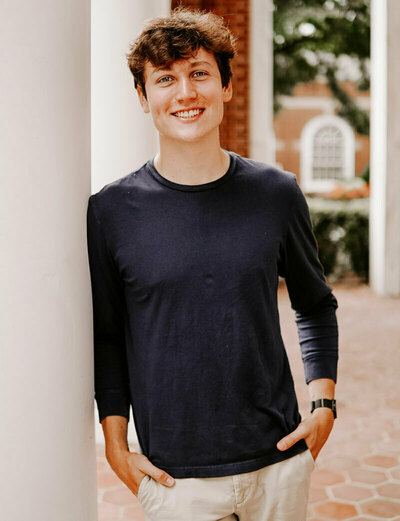
Daniel O'Brien '24
Majors: Philosophy, Theology, and Classics supplemental major with concentration in Greek
What I Do:
I am currently working with Prof. David Lincicum on a project concerning the Epistle of Barnabas, a non-canonical Christian work written roughly between 70 and 132 AD.
Specifically, I assist with the manuscript collation, the process of comparing differing manuscripts or editions of the same work in order to establish a corrected text. This process is instrumental in turning the raw data of various manuscripts into a single text to be utilized, while still noting the idiosyncrasies and variants the different manuscripts bring to the table.
I am also working on analyzing the many “scriptural” quotations found in the work, some of which vary distinctly from the “standard” texts they purport to quote and others of which are utterly mysterious in origin.
One lurking question asks to what extent the author of the work is deliberately altering or even generating quotations to fit his uses, or if he is quoting from variant or unknown sources. Another section of my research pertains to how other writers contemporary to the epistle of Barnabas cite and exegete these same sources, in order to ascertain the epistle’s place in post-temple Judaism and early Christianity.
Why I Decided to Do Research this Summer:
I have had a sustained interest in early Christianity since high school, an interest that has grown at Notre Dame, fostered by our excellent faculty and resources across many departments; after graduation, I intend to attend graduate school and eventually pursue a Ph.D. in this field.
Setting aside part of my summer for research allows me to focus specifically on research, acquiring skills first-hand that will help me in my academic career and pursuing a topic I find fascinating.
How I Got Started:
This past semester, I took New Testament Introduction with Professor Lincicum, and became particularly interested with the world of the New Testament—particularly, early non-canonical Christian works, those that “didn’t make the cut.” Fortunately, Professor Lincicum himself mentioned that he was engaged in research concerning one such work, the Epistle of Barnabas, and I asked if I could work as his research assistant on this project during the summer.
What I’m Learning So Far:
Research takes time, but is rewarding—I have begun the manuscript collation process, and looking back upon pages of completed collation is a satisfying feeling. I am particularly glad I am able to research in the summer, with fewer distractions from schoolwork and extracurriculars while having same resources being available to me, particularly those available through the Hesburgh Library.
Personally, this research has highlighted a dimension of my field to which I had previously not given enough thought—the countless hands throughout the centuries who laboriously hand-copied manuscripts for their preservation, a particularly impressive feat for those copying non-canonical works. The idiosyncrasies of Greek handwriting is a world I had not been exposed to before, and being able to read it is a unique experience, not to mention a very important skill to have in my field. Being able to examine and consider the very handwriting of these scribes, instead of typed text on a page, has been a fascinating experience, and I am looking forward to continuing this research for the rest of the summer.
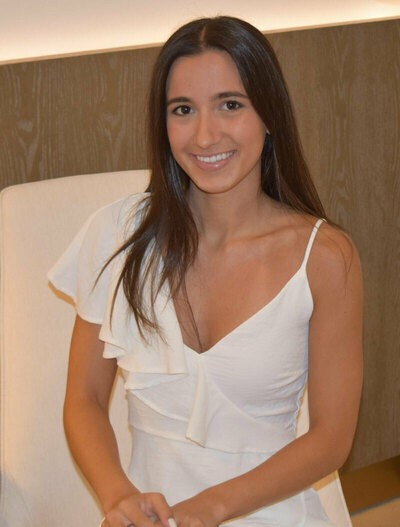
Viviana Fernandez '24
Major: Biology
What I Do:
I’m an undergraduate researcher in Dr. David Hyde’s lab, where we study the innate ability of the adult zebrafish to regenerate retinal neurons following damage. We are studying the roles of different cell types and signaling pathways that allow zebrafish to regenerate lost retinal neurons and compare this to mammals, which cannot regenerate retinal neurons. Understanding this process could provide helpful insight to develop treatments for human diseases, ultimately restoring vision in people with blindness.
My project focuses on examining how retinal regeneration varies during repeated rounds of damage. A group of zebrafish are damaged and allowed to regenerate three consecutive times. In each damage round, retinas are sectioned, stained, and imaged. Finally, non-neuronal cells, like Müller Glia and microglia, are quantified, and statistical analysis is used to determine changes in response during repeated damage.
Why I Decided to Do Research this Summer:
I greatly enjoy my work in the Hyde lab. The techniques are interesting, the fish facility is impressive, and the retinas under the confocal microscope are fascinating.
I significantly honed my technical research skills and gained so much scientific knowledge during the spring semester, so I knew that a summer term would be very enriching…and fun!
I expressed my interest to my mentor Celine Lu, and with her help, we developed a summer project. Once the project was approved, it was a no-brainer for me to stay.
How I Got Started:
As I arrived at Notre Dame, I was curious about exploring the world of research. My first biology course at Notre Dame was Dr. Hyde’s Blindness module in the Big Questions course, which piqued my interest in stem cell research.
Retinal processes and the potential of stem cells to serve as treatments for neurodegenerative diseases intrigued me. I wanted to find a way to contribute to the field as an undergraduate student.
During the fall semester of sophomore year, I expressed my interest to Dr. Hyde, and was fortunate to join the lab in the spring semester under the mentorship of Ph.D. candidate Celine Lu. Celine has taught me everything I know about stem cell and regenerative medicine research. She is an amazing scientist and mentor.
What I’m Learning So Far:
Through my research project, I’ve learned to perform techniques required for a biology research project—tissue sectioning, staining, and imaging. I’ve also strengthened my analytical and critical thinking skills, as well as problem-solving skills. Taken together, I’ve acquired the toolkit to successfully carry out a research project, and shifted my mindset from lab student to undergraduate researcher.
Most of all, I’ve learned the value of mentorship. I have an amazing mentor that is very patient and has been open and willing to share her knowledge and experience with me. Expressing that I’m not grasping a concept and asking for help has been the key to success.
I've learned that research entails failure, constant learning, and frequent modification of procedures. Reaching out to others in times of need or confusion definitely contributes to overall success and, more importantly, personal improvement.
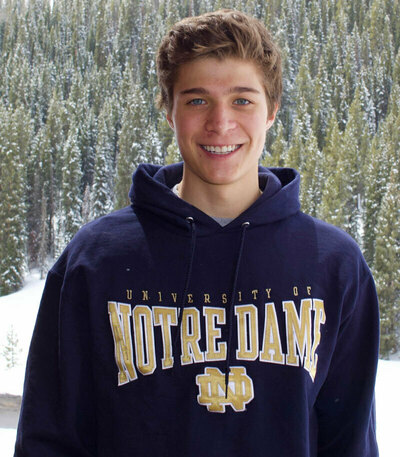
Chris Myers '24
Major: Aerospace engineering
What I Do:
I am a research assistant of the Computational Mechanics and Optimization Laboratory (CaMO). My research focuses on the implementation of a domain map that is used as a reference for a high-order implicit shock tracking method for simulation of complex, high-speed flows.
Using a computer software, I design 2D and 3D models of unique structures encased in a fairfield boundary, generate an unstructured mesh surrounding the structure, and refine the mesh to smooth the results.
The generated mesh model is utilized as a basis for the shock tracking formulation. The referenced mesh ensures the mapping will approximate the boundary of the physical domain to high-order accuracy.
Why I Decided to Do Research this Summer:
I wanted to collaborate with professors and students on advanced problems that goes beyond much of the material learned in class. I knew that surrounding myself with professors and graduate students, I would figure out how to tackle more complicated problems and learn about a topic much quicker through a hands-on process with the assistance of experienced professors and graduate students.
I wanted to learn about the aerospace graduate students’ experience and gain my own experience to discern what I can do during my research and help figure out what I want to do beyond my research.
How I Got Started:
I wanted to exercise my knowledge, gathered from various aerospace and mechanical engineering courses, and use them in a real-world problem. I’ve always enjoyed exploring new softwares and figuring out how to navigate them.
When I found out about this opportunity the CaMO lab, I reached out to Professor Zahr about undergraduate summer research. I work closely with a graduate student who has guided me through the early stages of mesh generation.
What I’m Learning So Far:
I am using a software called Ansys to generate and run simulations on meshes. There is a big learning curve using this software and I realized that research can start off a lot slower than what was anticipated. Research is about taking baby steps to solve one problem at a time and gaining skills along the way to become more efficient and advanced with any new task that is thrown at you.
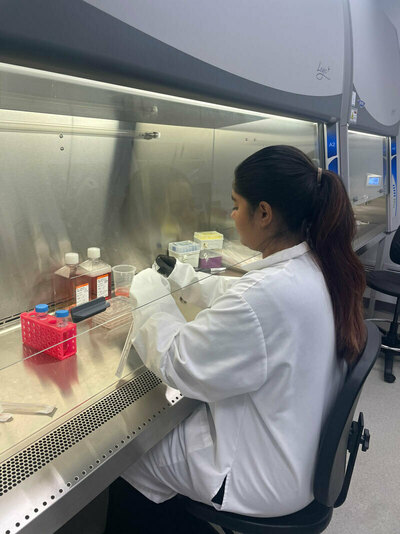
Victoria Discua '23
Major: Mathematics (Life sciences concentration)
Minor: Bioengineering
What I Do:
I am a summer fellow at Zorlutuna Lab under the supervision of Ph.D. candidate Gozde Basara. Zorlutuna Lab focuses on researching cell behavior and interaction with other cells and their environment.
Apart from the biology aspect of conditions like infarct myocardium and breast cancer, the lab utilizes engineering concepts to understand cell mechanics and interactions from a bioengineering perspective.
The work I am a part of this summer is specifically the design and development of a cardiac tissue disease model in which the main aim is to mimic the human body’s response to myocardial infarction.
Why I Decided to Do Research this Summer:
My current short-term aspiration is continuing my studies after graduation and pursuing a Ph.D. degree in bioengineering. However, during the academic year, I do not have much of an opportunity to participate in laboratory practices and experiences through my math classes. So, I decided to hone my research skills during the summer and be exposed to the same environment that I will during my future graduate studies.
How I Got Started:
As a bioengineering minor, I have always been amazed at how researchers approach current clinical challenges and provide solutions. Tissue engineering is especially interesting to me because of how resourcefully engineers utilize novel technology in conjunction with biological concepts to approach these challenges.
After reading one of the Zorlutuna Lab’s papers on bioprinting technology with the use of stem cells, I became interested in their work and decided to reach out.
What I’m Learning So Far:
This experience has taught me a variety of laboratory skills such as cell culturing, bioink preparation, and confocal microscopy imaging that will be incredibly useful in my future academic endeavors. I have also acquired soft skills such as teamwork, time-management, adaptability, and problem solving which are life-essential skills that will be useful in all aspects of my academic career and even everyday life.
Most importantly, I have learned to stay resilient even when every part of the experimentation goes wrong–which has happened a lot. Research is all about problem solving and troubleshooting which makes the successful experiments that much more gratifying.
Overall, I am grateful for the opportunity to learn more about myocardial infarction because of its prevalence as the world’s leading cause of death. I would have never thought I would have the opportunity to build upon the knowledge we have on the condition and help decrease its morbidity and hopefully mortality.
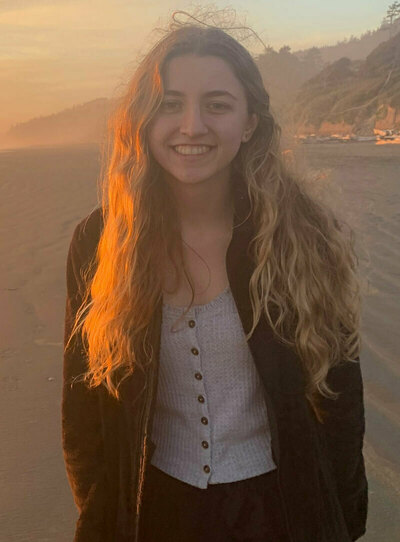
Hannah Enabnit '23
Major: Environmental engineering
What I Do:
I am interning at the Shirley Heinze Land Trust, a non-profit that preserves, restores, and manages lands in northwestern Indiana. My work focuses on expanding a water quality monitoring program that began last year.
I sample water from various streams and test them in the National Park Service lab for parameters including nutrients (nitrogen and phosphorus compounds) and bacteria (E. coli). These parameters are tied strongly to land use, especially fertilizer runoff from farms and leaking septic systems.
Our region of focus is predominantly agricultural, so through SHLT’s partnership with local farmers to implement agricultural best management practices, we hope to improve water quality in the area.
Why I Decided to Do Research this Summer:
I wanted to get hands-on experience in the field of environmental science and conservation. I know that I will have opportunities after college for jobs in industry, so I wanted to take advantage of this unique opportunity to partner with both Notre Dame and an outside organization to complete a research internship.
I especially appreciated how this work struck a balance between being outside in the field for sample collection, in the lab for data analysis, in the office for research, and at events for engagement.
How I Got Started:
In high school I had the opportunity to become a student manager for an environmental research and stewardship project that focused on assessing and improving the health of a local creek. I quickly became fond of the work and knew I would be interested in doing something similar in college or beyond.
I am majoring in environmental engineering where I am furthering my knowledge in water quality and its importance, so when I heard about the work that Shirley Heinze was doing, I reached out to them and quickly knew that it would be a good fit. Throughout the spring semester I met with Alicia Pellegrino from SHLT and Dr. Dominic Chaloner from Notre Dame and they guided me through learning more about land management and water quality, writing grant applications for funding, and preparing for my summer research.
What I’m Learning So Far:
Research can be tedious as information often isn’t as readily available as you might expect. Relevant information can be buried deep in legal code and scientific documentation may be sparse. Combing through it often takes longer than expected but it is worth it in the end!
Also, connecting with people is crucial. Carrying out research on a topic becomes infinitely more important once you use it to engage with the community around you.
Learn More About Research at Notre Dame
Each college and school at Notre Dame is home to centers and institutes that facilitate student research.
Visit individual college websites to learn more:
- College of Arts and Letters
- College of Engineering
- College of Science
- Keough School of Global Affairs
- Mendoza College of Business
- School of Architecture
Originally published by at admissions.nd.edu on June 27, 2022.